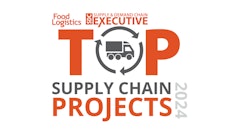Study reveals impact of cost increases on supply chain, offers insights into companies' responses to price hikes
New York — June 14, 2005 — Significant cost increases across a variety of commodity categories have hit small, medium and large enterprises over the past 12 months, but many companies are responding with price-focused strategies that may not ultimately reduce their total costs, according to a new study from Supply & Demand Chain Executive.
In the study, "Impact of Commodity Cost Increases on the Supply Chain," which was based on a survey of the magazine's readers, Supply & Demand Chain Executive reports that cost increases hit some segment of the survey respondents across all commodity categories surveyed, with particularly high number of respondents seeing increases for Transportation, Energy, Packing/Paper/Pulp and Office Supplies.
A free, hour-long informational Web seminar on Tuesday, June 21, at 2:00 p.m. Eastern Time, will address the results of the survey and provide recommendations for how companies can mitigate the impact of the cost increases.
Transportation Costs Seen Higher
According to the survey, the greatest cost increases have been for Steel/Metals (24 percent of respondents reporting cost increases of greater than 10 percent over last 12 months), Transportation (17 percent), Petrochemicals/Plastics (16 percent) and Energy (14 percent).
In addition to historical cost increases, the survey, conducted in February, asked about expected cost increases for the next 12 months. According to the results, 78 percent of respondents foresee cost increases for Transportation in the next 12 months. Other commodities widely expected to see price increases include Energy (69 percent expecting increases), Packing/Paper/Pulp (63 percent), and Steel/Metals (57 percent).
The survey also showed that the greatest price increases are expected for Transportation, with 24 percent of respondents indicating they believe that transportation costs will rise greater than 5 percent in the next 12 months. Other commodities expected to see high cost increases include Energy (22 percent expecting increases of greater than 5 percent), Steel/Metals (20 percent) and Petrochemicals/Plastics (18 percent).
Focus Not on Total Costs
"Inflation has certainly been a hot topic over the past year, with a lot of speculation about how fuel cost increases are going to filter through the economy and affect other costs," said Andrew K. Reese, editor of Supply & Demand Chain Executive. "Looking at our survey results, it's clear that costs are rising, and companies are going to have to take steps to deal with increases across a range of categories."
However, Reese noted that the survey also revealed that many enterprises are responding to the rising commodity costs with strategies focused on price considerations rather than on total cost. For example, some companies were increasing their forward purchases of certain commodities, despite the fact that this may well result in higher total costs due to increased inventories, higher exposure to the risk of obsolescence and less capital to invest elsewhere.
"Rhetorically, many companies say that they are focused on total cost of ownership, but operationally they are employing price-focused strategies in responding to the cost increases," Reese said.
Supply & Demand Chain Executive will hold a free, hour-long informational Web seminar on Tuesday, June 21, in conjunction with Staples, to discuss additional results of the survey and to provide recommendations for how companies can collaborate effectively both internally and with their supply base to address total costs.
To register for this free Web seminar, go to http://go.reachmail.net/rmgo.asp?tid=141485&eid=67265&sb_id=77447,77447.
New York — June 14, 2005 — Significant cost increases across a variety of commodity categories have hit small, medium and large enterprises over the past 12 months, but many companies are responding with price-focused strategies that may not ultimately reduce their total costs, according to a new study from Supply & Demand Chain Executive.
In the study, "Impact of Commodity Cost Increases on the Supply Chain," which was based on a survey of the magazine's readers, Supply & Demand Chain Executive reports that cost increases hit some segment of the survey respondents across all commodity categories surveyed, with particularly high number of respondents seeing increases for Transportation, Energy, Packing/Paper/Pulp and Office Supplies.
A free, hour-long informational Web seminar on Tuesday, June 21, at 2:00 p.m. Eastern Time, will address the results of the survey and provide recommendations for how companies can mitigate the impact of the cost increases.
Transportation Costs Seen Higher
According to the survey, the greatest cost increases have been for Steel/Metals (24 percent of respondents reporting cost increases of greater than 10 percent over last 12 months), Transportation (17 percent), Petrochemicals/Plastics (16 percent) and Energy (14 percent).
In addition to historical cost increases, the survey, conducted in February, asked about expected cost increases for the next 12 months. According to the results, 78 percent of respondents foresee cost increases for Transportation in the next 12 months. Other commodities widely expected to see price increases include Energy (69 percent expecting increases), Packing/Paper/Pulp (63 percent), and Steel/Metals (57 percent).
The survey also showed that the greatest price increases are expected for Transportation, with 24 percent of respondents indicating they believe that transportation costs will rise greater than 5 percent in the next 12 months. Other commodities expected to see high cost increases include Energy (22 percent expecting increases of greater than 5 percent), Steel/Metals (20 percent) and Petrochemicals/Plastics (18 percent).
Focus Not on Total Costs
"Inflation has certainly been a hot topic over the past year, with a lot of speculation about how fuel cost increases are going to filter through the economy and affect other costs," said Andrew K. Reese, editor of Supply & Demand Chain Executive. "Looking at our survey results, it's clear that costs are rising, and companies are going to have to take steps to deal with increases across a range of categories."
However, Reese noted that the survey also revealed that many enterprises are responding to the rising commodity costs with strategies focused on price considerations rather than on total cost. For example, some companies were increasing their forward purchases of certain commodities, despite the fact that this may well result in higher total costs due to increased inventories, higher exposure to the risk of obsolescence and less capital to invest elsewhere.
"Rhetorically, many companies say that they are focused on total cost of ownership, but operationally they are employing price-focused strategies in responding to the cost increases," Reese said.
Supply & Demand Chain Executive will hold a free, hour-long informational Web seminar on Tuesday, June 21, in conjunction with Staples, to discuss additional results of the survey and to provide recommendations for how companies can collaborate effectively both internally and with their supply base to address total costs.
To register for this free Web seminar, go to http://go.reachmail.net/rmgo.asp?tid=141485&eid=67265&sb_id=77447,77447.




























